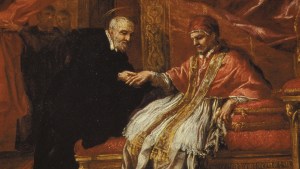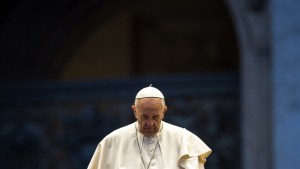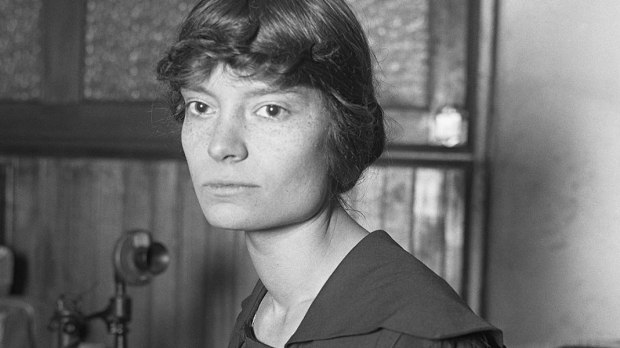“As a convert, I never expected much of bishops,” said Dorothy Day, at the age of 70. She’d been dealing with them up close for over four decades. “In all history, popes and bishops and father abbots seem to have been blind and power-loving and greedy. I never expected leadership from them. It is the saints that keep appearing all through history who keep things going. What I do expect is the bread of life and down through the ages there is that continuity.”
It’s a useful lesson now, when the sins of our priests and bishops dominate the news. It’s one I described in my own way a few days ago in Scandal in the Church. Day could deal with the failings and the sins of the Church’s ministers, especially her bishops, because she so loved the Mass and everything else that God gave her daily, through chosen but fallen men. Here are some of her thoughts about the Mass.
“I love the Church with all my heart and soul,” she said another time when she was looking back at her life as a Catholic. “I never go inside a church without thanking God almighty for giving me a home. The Church is my home, and I don’t want to be homeless. … I have never wanted to challenge the Church, only be part of it, [and] in return, receive its love and mercy, and the mercy and love of Jesus.”
She felt that love most powerfully in the Mass, the presence of Jesus that God gives us through the consecrated but imperfect hands of priests. The Mass is always the Mass. Her work serving the poor made her see “more and more that the great and powerful weapon to be used against the powers of darkness is the Holy Sacrifice. … When I feel the most completely helpless, then the thought that we have the Mass is the greatest comfort in the world.”
The priests
I think her love of the Mass helped her be realistic about priests. She knew good ones and bad ones. She loved the priesthood first because of what priests do. “We should understand the authority of the priest, and respect him for his function, and be grateful. The power he possesses by virtue of his ordination does the work, not he.” Even when we’re frustrated by a priest, “we must not judge the church by the man, by the human element.”
This feeling applied to confession as well. “Herein lies the priest’s authority,” she wrote in her diaries. “We go to him for what only he can give, due to his calling, his training, his love for his work. We go to him as we would go to a physician to remedy the pain of our bodies, and surely the pain of our souls. The sickliness of the spiritual life is a real illness. We accept the authority of the doctors as such even if we go from one to another seeking remedies.”
This respect for their office and what they alone could bring us wasn’t the only reason she could be realistic about the priesthood. She could be realistic because she knew and loved many priests, and she knew the scandals didn’t tell the whole story. She spoke of one “humble and holy” bishop who “warmed my heart and increased my devotion to the church and the hierarchy. How the heart wants to love. How grateful it is to be able to love, to find people lovable.”

Read more:
5 Saints who spent extremely long hours hearing confessions every day
Renewal
However, Dorothy Day’s realistic attitude to the clergy isn’t the main insight of the quote at the beginning. I think this is: “It is the saints that keep appearing all through history who keep things going.” Many of them are priests and bishops.
Something as old, as big, as complex as the Catholic Church, and with its history, is going always to be compromised. Its leadership will disappoint and sometimes scandalize us. Sociology and theology both tell us that. What Day saw was something sociology doesn’t explain: all those eruptions of holiness and heroism that suggest something Big is behind it, something that keeps it from being its natural self.
“Of course the church is corrupt!” Day wrote in her diaries. “‘But this corruption must put on incorruption,’ St. Paul says, so I rejoice as I have in my short lifetime seen renewals going on, or read of them, and the excitement, the joy of this sense of renewal. … I read the lives of the saints, and knew that the renewal they brought — over and over, the St. Benedicts, St. Francis, St. Dominic, St. Vincent de Paul, St. Isaac Jogues, etc., etc., etc. — was not just a thing of the past but was going on, over and over.”

Read more:
Pope writes letter on sexual abuse: To the People of God …

